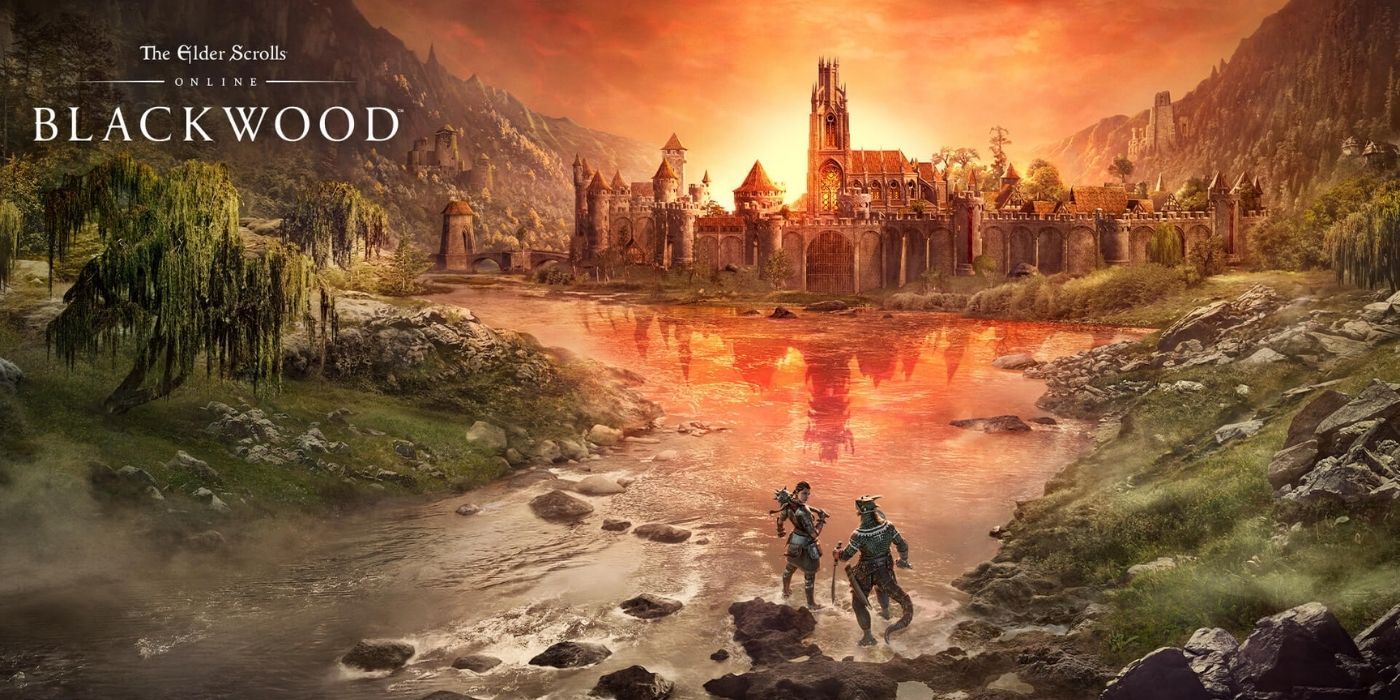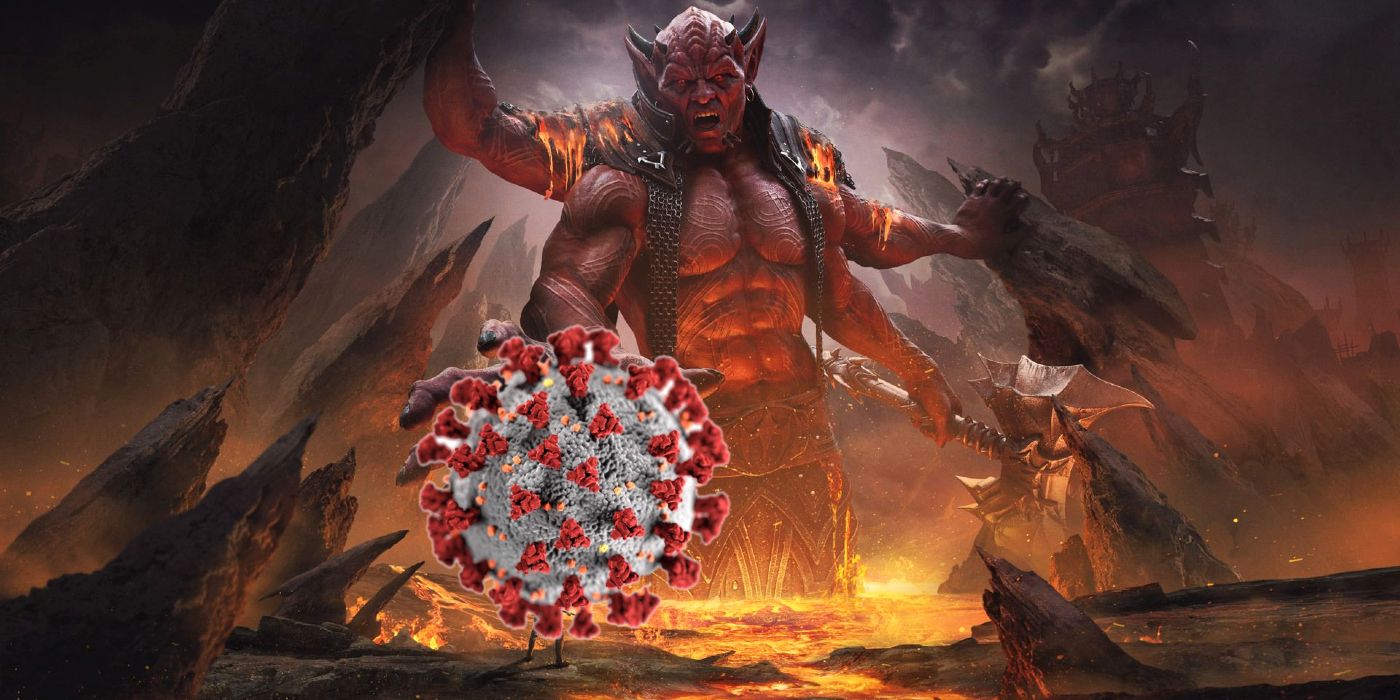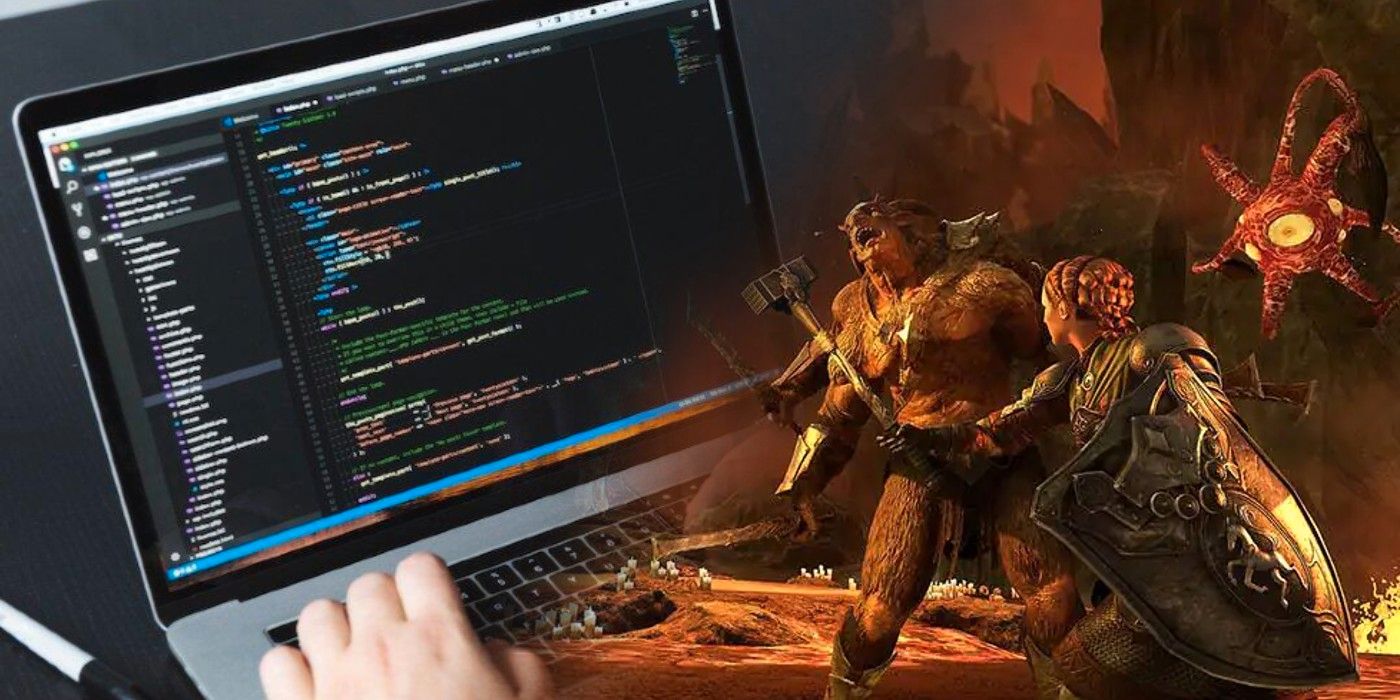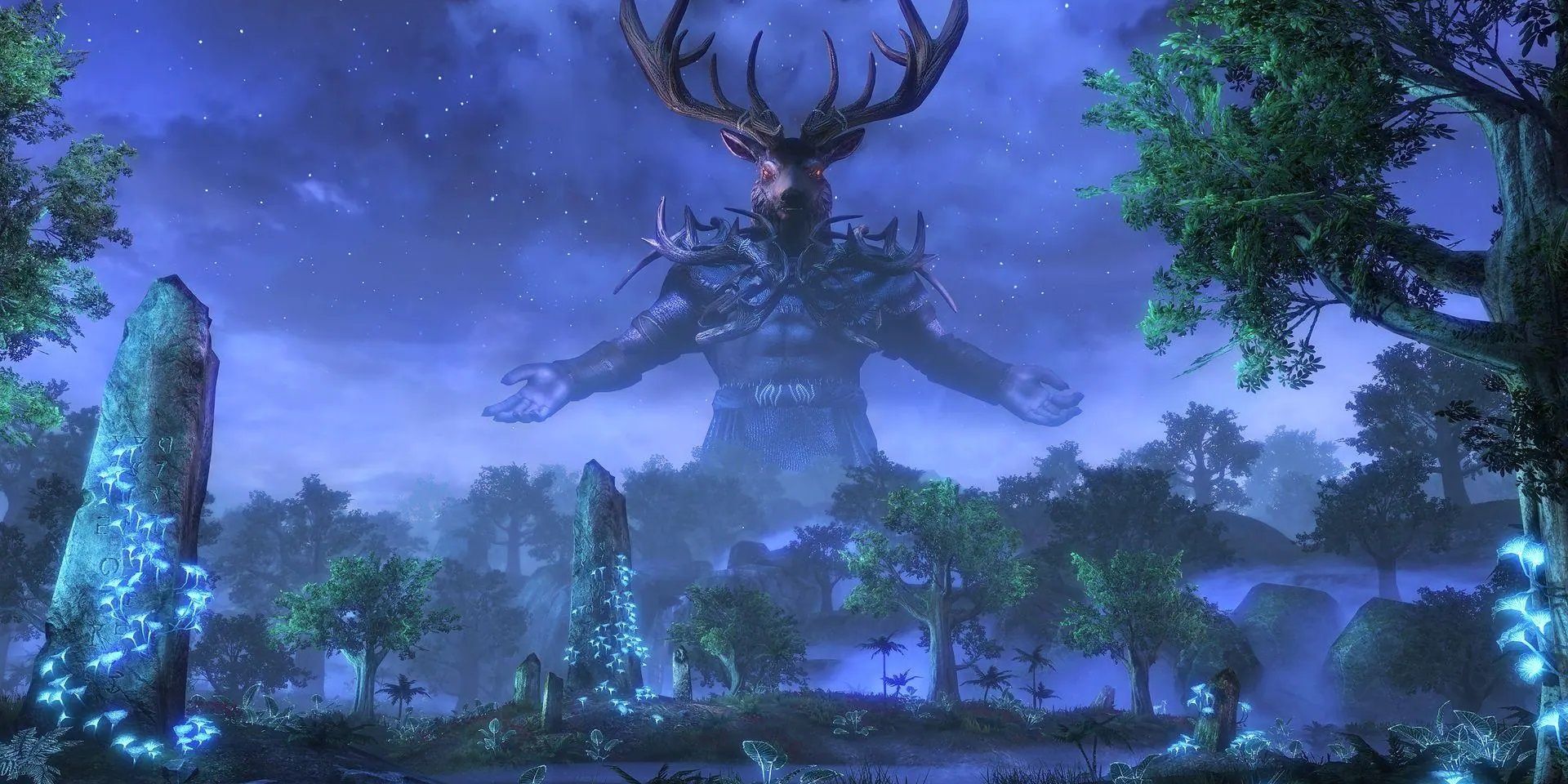The Elder Scrolls Online: Blackwood is reaching the end of its year-long release cycle, as the fourth time-gated content update Deadlands is scheduled to release in the final months of the year. Having been released during the height of the COVID-19 pandemic, Blackwood ended up being a little bit different than The Elder Scrolls Online's previous expansions, both in terms of content and development expectations.
RELATED: Nvidia Deep Learning Anti-Aliasing Will Debut in Elder Scrolls Online
In an interview with Game Rant, Rich Lambert, the Creative Director of The Elder Scrolls Online at Zenimax Online Studios, revealed how the latest expansion was ultimately shaped by this unprecedented year, how he sees the game as a developer vs. a long-time player, and how the learning experience of Blackwood has shaped the future of ESO.
Blackwood In Retrospect

The Elder Scrolls Online operates under a very different model than most MMOs. Instead of requiring a monthly subscription to play, and instead of offering endgame mechanics with the sole focus of stringing players along, ESO puts its focus on the player experience. Rich Lambert prides himself and his team on being able to put out a "true Elder Scrolls experience" where story and player-driven choices matter more than traditional MMO gameplay – especially so many years after the release of the open-world oriented One Tamriel update.
"The biggest thing, first and foremost, is a focus on the player's journey through the world," Lambert said, regarding how the MMO differs from others on the market. "It's an Elder Scrolls game first, and an MMO second." Lambert additionally pointed out the game's unique Battle Leveling system and the accessibility of ESO for new players, particularly on consoles.
RELATED: Final Fantasy 14 Could Go in a Similar Direction as The Elder Scrolls Online
The Elder Scrolls Online: Blackwood is the game's fifth major expansion, following Morrowind, Summerset, Elsweyr, and Greymoor, and mirrors the story of The Elder Scrolls IV: Oblivion, serving as a prequel to the Daedric events of Tamriel's far-off future. Some players believe that Blackwood leans too heavily on nostalgia for Oblivion, and didn't offer enough new content to last for a year-long expansion. Blackwood brought the Companion system to ESO, as well as Oblivion Portals in new zones, but compared to the vast Antiquities system of Greymoor or the Jewelry Crafting and Psijic Order skill lines of Summerset, many players found Blackwood wanting.
"I think it's valid feedback, and it's something we always walk the line on," Lambert said on the nostalgic aspects of Blackwood. "We have proven over the years that we are willing to try new things... I think it's OK if something doesn't resonate with people."
COVID-19: An Unprecedented Challenge

While Blackwood has the same number of major quests and a 20-hour story to guide the player, Rich Lambert said the relative lack of side content is mostly due to new work conditions during the COVID-19 pandemic. It's no secret that the pandemic has forever changed the way work is done in many industries, but it has taken time for many companies and developers to get used to the work-from-home lifestyle.
"It's been a learning challenge, having to re-learn how to be collaborative," Lambert said. "You can't just walk to someone's desk if there's a problem. "
The expansion had fewer side stories and less side content for players to explore not tied to the overarching Gates of Oblivion storyline. According to Lambert, this was an intentional decision to avoid overworking the team and avoid the most dreaded word in the video game development industry: crunch.
"We're not as efficient or as fast working from home," Lambert said. "We do a lot of work, it's OK if we do a little less to avoid crunch. It's a learning experience – but ESO is really healthy, and we aren't going anywhere."
Lambert went on to say that the ESO development team is still working from home currently, and there are no plans to return to the office for the foreseeable future. For the next ESO chapter and likely beyond, the majority of the development team will still be working from home.
The Developer vs. Player Perspective

In addition to being the Creative Director of The Elder Scrolls Online at Zenimax, Rich Lambert has recently started to stream his own playthrough of some higher-end content available in the game, like Veteran Dungeons. On the differences between the behind-the-scenes development perspective and the player experience, Lambert said it's refreshing to see how players learn to deal with new content.
RELATED: Elder Scrolls Online: Things Players Starting With The Console Enhanced Edition Need To Know
"Me streaming isn't me starting to play the game again, I play the game a lot," Lambert said, mentioning that he has been a dedicated player since the very beginning. "It's always interesting to do high-end soloing and dungeons, because I don't want to spoil the story." Lambert said he likes to "fully immerse" himself in the story and voice acting performances of the game, and tries to avoid spoilers with his streaming endeavors.
With the release of the Console Enhanced Edition of the game for PlayStation 5 and Xbox Series X, Lambert said the console version of the game is getting ever-closer to the PC experience thanks to 4k textures, vastly reduced load times, and other major enhancements. "ESO is really healthy... it's never been stronger," Lambert said.
Shaping The Future Of ESO: What's Coming Next?

Part of the end-of-year cycle for The Elder Scrolls Online is anticipation for what's to come in the following year. Rich Lambert confirmed some things currently in the works that the community has asked for over time. While the game prides itself on being an Elder Scrolls game first and an MMO second, an Armory system will be coming in the next update that will allow players to save multiple different builds – including skill point allocation. In addition to this, work on RNG systems is being done to allow players easier access to the items they want without making it too easy.
When asked plainly whether he can reveal anything about the next chapter in ESO's wide-ranging story, Lambert noted the nearly complete map of Tamriel and responded with a rhetorical question: "what happens when the map is filled?" The end of Blackwood brings a close to the current Gates of Oblivion storyline, but Lambert also noted that "Oblivion is nearly infinite in size and scope."
While nothing has officially been confirmed or hinted at, players are beginning to wonder where the game could possibly go next. The majority of Skyrim is still unexplorable, as well as parts of Cyrodiil and Elsweyr, though just about every area in Tamriel is playable in some capacity. The various planes of Oblivion are an obvious next step that could lead from the conclusion of the gates of Oblivion story. There is the possibility of traveling beyond Tamriel, too, as continents like Akavir also exist on Nirn and play a major role in the overarching story of The Elder Scrolls Online.
Lambert pointed out that the team has filled out the map steadily over the years and will continue to do that in the future, but he also said that the next expansion will take players "somewhere nobody is expecting."
"I know exactly where we're going," Lambert said. "I'm just not going to tell you."
The Elder Scrolls Online is available for PC/Mac, PlayStation 4 and 5, Stadia, and the Xbox One and Series X|S.

